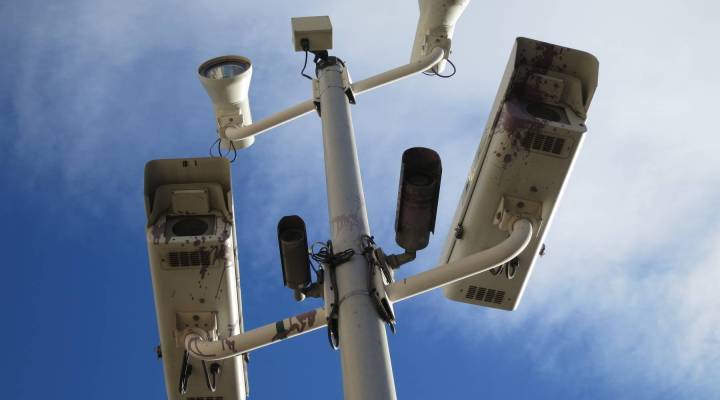
Are red light cameras for safety or making money?

Red light cameras – love’em or hate’em – have spread to more than 430 cities across the US.
They’re a game-changer for many police departments looking to prevent accidents and conserve resources, but the technology is facing backlash in many states and opponents see them as less about safer streets and more about making money.
Ten states have outright bans and last year Missouri’s Supreme Court shut down St. Louis’ camera program ruling the city’s ticketing ordinance unconstitutional. But St. Louis’ cameras are still mounted at about 35 intersections, because city officials are hoping to turn them back on.
St. Louis Metropolitan Police Department Chief Sam Dotson said the cameras are needed to improve public safety
“We saw that the number of accidents was reduced. We saw that people did not continually run the same electric signal,” he said. “So I think it had tremendous value.”
According to American Traffic Solutions, the US’s largest camera vendor including St. Louis, research from across the country backs up Dotson’s claims.
“In almost every study we’ve seen the number of violations, the number of collisions and number of injuries decrease in communities where red light safety cameras are used,” Charles Territo, the company’s senior VP for Communications, said.
Additionally, Chief Dotson said they also free up more officers from having to pull over and ticket red light runners. But there are some who say the cameras are not about saving money; they’re about making money.
Dan Hyatt is running for a state house seat in north St. Louis County and supports efforts in Missouri‘s capital to ban them statewide.
“Luckily Jefferson City has identified the corruption here in St. Louis and is doing everything they can to stop revenue enforcement, taxation by citation,” he said.
Hyatt said it’s easy for city officials support the cameras because they’re so lucrative. In the 18 months before they were shuttered, St. Louis’ cameras program generated $5.6 million in ticket fines. The city had to refund that money after the state Supreme Court shut down the cameras, ruling that it was unconstitutional to fine vehicle owners even when they weren’t driving.

A red light runner T-boned Owen Godwin’s 1992 Toyota Camry recently in south St. Louis.
“I think the city didn’t understand how big it was going to get and how much money was going to be involved,” Attorney Bevis Schock, who helped argued the case, said.
Schock said the backlash isn’t limited to the St. Louis area either. Across the country, cameras generate hundreds of millions of dollars for local municipalities and that, he said, doesn’t sit well with many Americans.
“See, the American people understand injustice in their guts. They don’t know a lot about government … but they know injustice and they know wrong and they know a rip off.”
Schock and Hyatt are among many who believe the cameras don’t necessarily improve safety either. Hyatt pointed to studies that show rear-end collisions actually increase because of drivers slamming on their breaks.
“So what they’re doing is emergency stops risking accidents, risking rear-end collisions to avoid getting a red light camera ticket,” he said.
He also added that many studies can be skewed because rear-end collisions are significantly under-reported and often don’t show up in the data.
Despite vocal opponents, St. Louis City officials plan to propose a new ordinance to get the cameras issuing tickets again.
There’s a lot happening in the world. Through it all, Marketplace is here for you.
You rely on Marketplace to break down the world’s events and tell you how it affects you in a fact-based, approachable way. We rely on your financial support to keep making that possible.
Your donation today powers the independent journalism that you rely on. For just $5/month, you can help sustain Marketplace so we can keep reporting on the things that matter to you.












